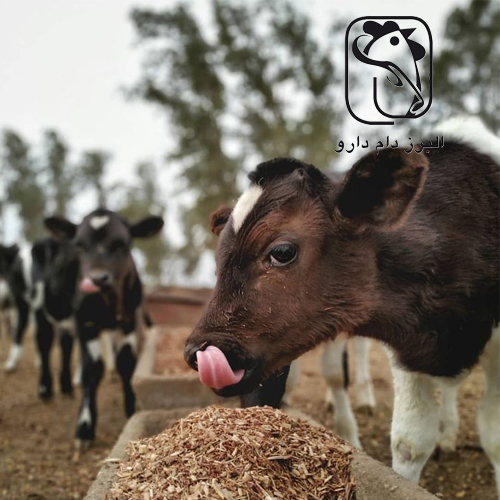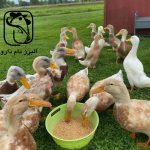
Organic Animal Feed
Organic Animal Feed
Organic Animal Feed | In recent years, the demand for organic products in global markets has significantly increased. One of the key areas of this change is the animal feed industry. Organic animal feed is recognized as a sustainable and healthy solution for meeting the nutritional needs of livestock and ultimately providing animal protein for humans. This article will explore the current trends in the production of organic animal feed, the challenges faced by this industry, and its benefits for the health of animals and humans
Concept of Organic Animal Feed
1.1Definition of Organic Animal Feed
Organic animal feed refers to feeds produced using organic farming methods. These types of feeds are produced without the use of chemical pesticides, synthetic fertilizers, and hormones, and are designed based on the principles of sustainable agriculture and environmental protection
1.2Principles of Organic Animal Feed Production
:The production of organic animal feed is based on several key principles
Use of Natural Raw Materials: The raw materials used in the production of organic animal feed must come from natural sources and be free from chemical
Biodiversity: Cultivation methods should be designed to preserve biodiversity and prevent species extinction
Sustainable Management: Optimal use of natural resources and minimizing negative impacts on th environment are fundamental principles of organic animal feed production

.2Trends in Organic Animal Feed Production
2.1Increasing Demand
The growing global demand for organic products, especially in developed countries, is one of the main factors driving the development of organic animal feed production. Consumers, due to greater awareness of health and environmental benefits, are showing an increasing willingness to purchase organic products.
2.2Technological Innovation
The development of modern technologies in organic animal feed production, including smart irrigation systems, crop rotation, and the use of biotechnology, has contributed to improving quality and increasing productivity. These technologies can lead to reduced production costs and enhanced quality of final products.
2.3Supportive Policies
Governments and international organizations are aiding the development of organic animal feed production by providing subsidies and financial incentives to producers. These policies can encourage farmers to shift towards organic agriculture.
2.4Public Awareness
Increased public awareness of the benefits of organic animal feed and the negative impacts of non-organic feeds on health and the environment has contributed to the growth of this industry. Educational and promotional programs in this area play a significant role.
.3Challenges in Organic Animal Feed Production
.3.1High Production Costs
One of the main challenges in organic animal feed production is the high production costs. The use of organic farming methods typically requires more investment compared to traditional agriculture. These costs may include high expenses for raw materials, equipment, and labor.
.3.2Resource Limitations
Limited access to high-quality natural resources, including suitable land and water, can act as a barrier for organic animal feed producers. These limitations can lead to reduced production capacity and increased prices.
.3.3Marketing Challenges
Marketing organic products and establishing a reputable brand in this field can be difficult. Producers must effectively communicate the benefits of their products to consumers and succeed in competitive markets.
.3.4Standards and Certifications
Compliance with specific standards for producing organic animal feed and obtaining the necessary certifications can be time-consuming and costly. This issue can serve as a barrier for new farmers entering the market.
Alborz Dam Darou Company

.4Benefits of Organic Animal Feed
.4.1Improved Animal Health
Organic animal feed, due to the use of natural ingredients and the absence of chemicals and additives, can lead to improved health and welfare of livestock. Animals that consume organic feed typically have better health status and are less prone to diseases.
.4.2Enhanced Quality of Animal Products
Organic animal feed can result in the production of higher-quality animal products, including organic meat, milk, and eggs. These products often have better taste and nutritional value, which increases consumer preference for them.
.4.3Environmental Protection
The production of organic animal feed contributes to environmental protection. This type of production helps reduce soil and water pollution, preserves biodiversity, and mitigates the negative impacts associated with the use of chemical pesticides and fertilizers.
4.4. Sustainable Development
Organic animal feed is recognized as a sustainable solution for meeting food and economic needs while protecting the environment. This type of production can help ensure food security and improve the livelihoods of farmers.
.4.5Creation of New Markets
With the increasing demand for organic products, organic animal feed producers can access new and profitable markets. This can lead to job creation and economic growth in local communities.
.5Conclusion
Organic animal feed is recognized as a sustainable and healthy solution for meeting the nutritional needs of livestock and humans. Despite the existing challenges in this industry, the growing trends and increasing demand for organic products indicate the high potential of this sector. Success in organic animal feed production requires collaboration among all stakeholders, including governments, producers, and consumers. Given the numerous benefits of organic animal feed, there is hope for a sustainable and successful future in this industry.





